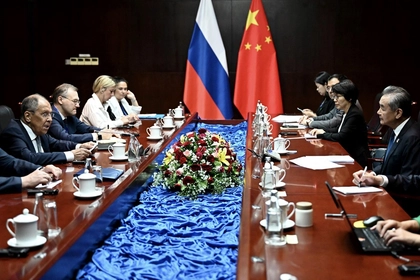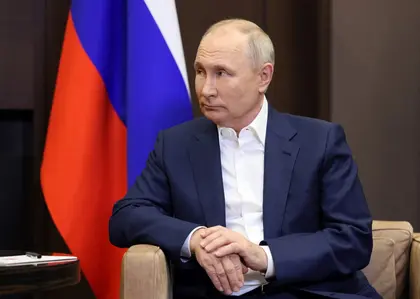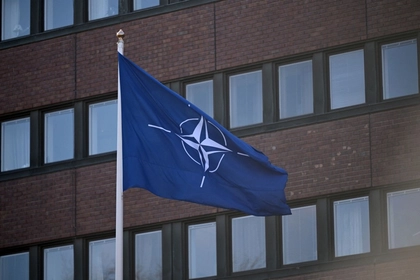Friday, Sept. 15 is the first day of Rosh Hashanah – the Jewish New Year – for which some customs and traditions remain as predictable as they are timeless. Russian President Vladimir Putin’s recent use of antisemitic tropes, is something that seems to be taken right out of the textbook of past Russian leaders’ atrocious behavior.
Earlier this year, when Russian Foreign Minister Sergei Lavrov was asked how Russia could be “de-Nazifying” a country led by a Jewish President, he responded, “I could be wrong, but Hitler also had Jewish blood,” explaining that even if the Ukrainian president is Jewish, it “means absolutely nothing. Wise Jewish people say that the most ardent antisemites are usually Jews.”
The Kremlin spokesman, Dmitry Peskov, accused Zelensky of “waging war on Christianity,” after Ukraine had cracked down on several religious institutions allegedly linked to Russian intelligence and political activities.
This is viewed as an example of a modern blood libel – an old trope alleging that Jews were engaged in the ritual murder of Christians. Such accusations have led to murders and persecution of Jews around the world, and both Lavrov’s and Peskov’s comments came with tacit approval from the Kremlin.
The pattern of Kremlin underlings continuing to echo these stated views is undeniable. In the past, portrayals of Jews in stereotypical roles as greedy, cunning, treacherous, criminal, and unpatriotic were constrained within Russia’s official channels. After the full-scale invasion of Ukraine, the gloves have come off. The approval of the dissemination of the type of insults and ethnic and religious slurs that would normally be cause for global outrage and condemnations comes from the very top.

Russia, China FMs Meet as ASEAN Talks Get Underway in Laos
President Zelensky referred to Putin in a June interview as “the second king of antisemitism after Hitler.” While Putin was later forced to make public apologies on Lavrov’s behalf – are the Russian president’s own views really so far different from his minister’s?
As the Jerusalem Post reported, just over a week ago, the Russian president told a reporter that Zelensky had come to power because “Western curators have put a person at the head of modern Ukraine – an ethnic Jew, with Jewish roots, with Jewish origins.”
He continued that “this makes the whole situation extremely disgusting, in that an ethnic Jew is covering up the glorification of Nazism and covering up for those who led the Holocaust in Ukraine at one time – and this is the extermination of one-and-a-half million people."
Putin, who had only months before said that he has “a lot of Jewish friends” who had explained to him that “Zelensky is not Jewish,” rather, “he is a disgrace to the Jewish people,” seems to associate Jews as a collective that behave in certain ways that would distinguish them from the rest of the society.
Some may argue that such statements are simply a result of old age or slips of the tongue – however, Putin’s remarks seemingly give the green light to say outlandish things under his regime – as multiple Russian “thought leaders” having publicly named “Jews who lack patriotism” and have stated that Russia’s Jewish citizens are “not Russian.”
Earlier this week, Putin signaled that his own worldview aligned with these “thought leaders,” when he commented on the emigration of Anatoly Chubais, who served as deputy prime minister, to Israel following the full-scale invasion of Ukraine. Putin was quoted as mocking both Chubais’ ethnicity and desire to move to Israel saying: “For some reason, [Chubais] is hiding there. They showed me photographs, from the internet where he is no longer Anatoly Chubais, but some Moshe Israeilevich, living somewhere there. Why does he do this? I don’t understand.”
Has Russia really changed? Semyon Goldin, an Israeli researcher of European Jewry asked, in an Israeli article published this week: “Just like 110 years ago when the Russian army declared ‘war’ on the Jews, Russian soldiers today are fighting not only with Ukraine but also with Ukrainians. In an effort to nip in the bud any possible resistance in their rear, Russian troops are acting according to centuries-old patterns and resorting to mass repression.”
As if these observations are not enough, the exiled Moscow chief rabbi, Pinchas Goldschmidt, urged the remaining Jewish population in Russia to leave before they are scapegoated for hardships resulting from the war. The official statements from Putin and his staff are exactly the sort of incitement that had led to deadly pogroms throughout Russian history.
Russian history shows that tolerance for and state endorsement of antisemitic beliefs has laid the groundwork for citizens to participate in the state’s antisemitic agenda. We see strong parallels between these when we compare it to how Russia has sought to erase Ukrainian language, identity, and statehood.
Where does this go?
Perhaps the next time Putin’s apologists feel inclined to praise the anecdotes of his alleged antisemitic philosophy, they would do well to recall both his background in the KGB – which masterminded both the distribution of the Protocols of the Elders of Zion around the world, while engaging in systematic oppression of its own Jewish citizens – and his recent record of antisemitic statements, which historically have led to discrimination, violence, and eventually outright purges against the Jews.
Putin, however, manages to outdo his predecessors by tying antisemitic propaganda to the whitewashing of his own war crimes and attempts to erase history. Even Stalin, whose efforts to suppress Ukrainian identity led to the genocidal policies of Holodomor, and whose plans to isolate Jews in Birobijan may have advanced a second Holocaust were they not curtailed by his demise – did not go as far.
You can also highlight the text and press Ctrl + Enter






